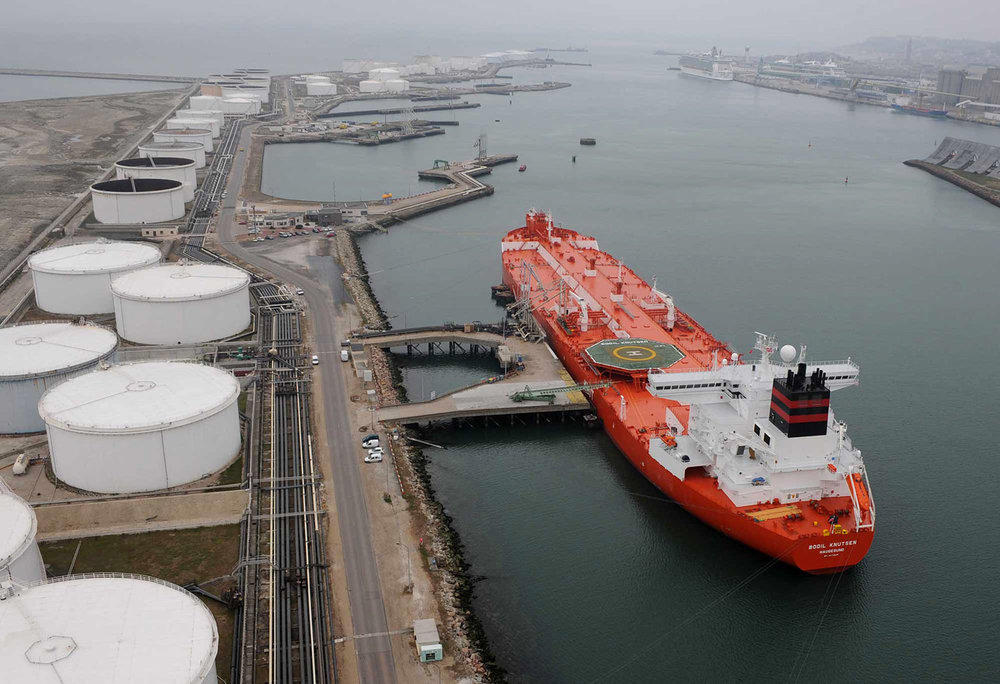Iran’s oil market after U.S. nuclear deal exit

Near two weeks after U.S. President Donald Trump declared his decision on withdrawing from Iran’s nuclear deal, known as Joint Comprehensive Plan of Action (JCPOA), oil traders around the world are still following a “wait and see” strategy toward the consequences of Trump’s decision for Iran’s oil exports and market in general.
Overall, there seems to be a consensus that the U.S. decision on leaving the nuclear deal, achieved between Iran and five major powers in 2015, is not going to have any immediate effect on Iran's oil exports. Since, it seems that the United States is alone on the path to restoring sanctions against Iran and the other signatories are not supporting Trump’s decision in this regard.
However, although most of Iran’s oil customers haven’t showed any signs of reluctant for maintaining trade with the country, considering the existing risks and uncertainties, they are remaining alert and ready for finding new replacement for their Iranian crude intakes.
Market experts and scholars believe that Iran is going to face some challenges in maintaining its oil exports after U.S. reimopses sanctions on the country’s oil industry.
For instance, the increase in the U.S.’s shale oil production and reduction of their domestic demand has made them able to raise the oil exports to replace Iran's oil in case the market tightens as a result of the sanctions. There is also the risk of Saudi Arabia which has made it clear that is ready to increase production to fill the gap which could be created by the cuts in Iranian oil supplies to the market.
Yet another challenge, which could be considered the most important one, is money transfer and banking issues. Iran is already wrestling with this problem.
Considering the above mentioned challenges, the question is, how Iran’s oil industry is going to face such hardships? Does the experience from previous sanctions can help lessen the impact of the new challenges facing the country’s oil industry?
Iran’s current oil exports and trade
Iranian oil officials have repeatedly said over the past two weeks that Trump's remarks have had not any impact on the country’s oil exports or the oil market so far.
Earlier on May 11, three days after Trump’s announcement, Iranian Oil Minister Bijan Namdar Zanganeh said Donald Trump’s decision on abandoning the nuclear deal is not going to have a great impact on Iran’s oil, gas and gas condensate exports and revenue.
Many analysts agree with the Iranian oil minister, since they believe any possible sanctions against Iran may take months to kick in [if they do], because the United States needs a global consensus to impose effective sanctions on Iran. This is while the international community, including the European countries, are pushing hard to keep the nuclear deal.
Following EU’s policy toward Iran this time, European Energy Commissioner Miguel Arias Canete traveled to Iran on Saturday to pass the EU’s message: “we will stick to the deal”!
In his visit to Tehran, the energy chief reassured top Iranian ministers that the European Union wants to keep trade open despite the U.S. withdrawal from the nuclear deal.
“The objective of my visit is to continue to strengthen energy relations with Iran, most importantly now against this new challenging background of President Trump's announcement”, Canete said in Tehran.
Following his meeting with Canete, Zanganeh once again asserted that the U.S. president’s withdrawal from Iran’s nuclear deal will not affect Iran’s oil exports if the EU supports the deal.
Oil transportation
Meanwhile, some senior maritime transport officials believe that they are not expecting any changes or problems in Iran's oil shipments following Western sanctions.
National Iranian Tanker Company (NITC) Managing Director Nasrollah Sardashti said on May 11 that his company has made the necessary planning and NITC fleet is ready to operate under any circumstances.
“We have an experience of five-year activity under the sanctions and now relying on our fruitful experiences of those years we have made necessary planning for the possible re-imposition of the sanctions”, Sardashti stated.
Money Transfer, financial issues
One of the main reasons for the decrease in Iran's oil exports in 2012 was the lack of cooperation from European banks to transfer Iran's oil sales money.
Nowadays, even after the removal of the sanctions in 2016, financial constraints are still holding Iran back from its full potential for trade with Europe.
However, in an indication of the EU’s determination for keeping the JCPOA, Reuters reported on May 18, that the European Commission is proposing that EU governments make direct money transfers to Iran’s central bank to avoid U.S. penalties.
“The European Union, once Iran’s biggest oil importer, is determined to save the nuclear accord, that U.S. President Donald Trump abandoned on May 8, by keeping money flowing to Tehran as long as the Islamic Republic complies with the 2015 deal to prevent it from developing an atomic weapon“, the report read.
Considering all effective factors, one can say with confidence that this time U.S. is not having its allies’ support against Iran.
It is now clear that the U.S. withdrawal from the nuclear deal could have a significant impact on Iran’s oil industry only if the United Nations, too, decides to restore sanctions against Iran, otherwise nothing will happen, as Iran's oil is not linked to the United States at all, even the money is not going to be paid in dollars anymore.
EF/MA
Leave a Comment